Three Second Kiss | Interview | New Album, ‘From Fire I Save the Flame’
Three Second Kiss has made a powerful return with their latest album, ‘From Fire I Save the Flame,’ released on May 24 via Overdrive Records.
This isn’t just a reunion; it’s a bold evolution of their sound and approach. Originally from Bologna and now based in Catania, the band’s new work reflects a transformation influenced by the vibrant chaos of their current environment and a journey through personal and musical upheavals.
The album, recorded with renowned sound engineer Don Zientara, embodies the band’s collective effort, with no single leader but a true representation of their synergy. ‘From Fire I Save the Flame’ delivers raw, punk rock energy and a blend of heart and instinct, shaped by years of movement and change. It captures the essence of Three Second Kiss’s dynamic interplay between sharp guitars, a pulsating bass, and relentless drums.
Known for their collaborations with Steve Albini and appearances at All Tomorrow’s Parties, Three Second Kiss continues to be a powerful force in the alternative punk scene. Their new album upholds their legacy of unfiltered sound and electric intensity, showcasing their evolution while staying true to their roots.
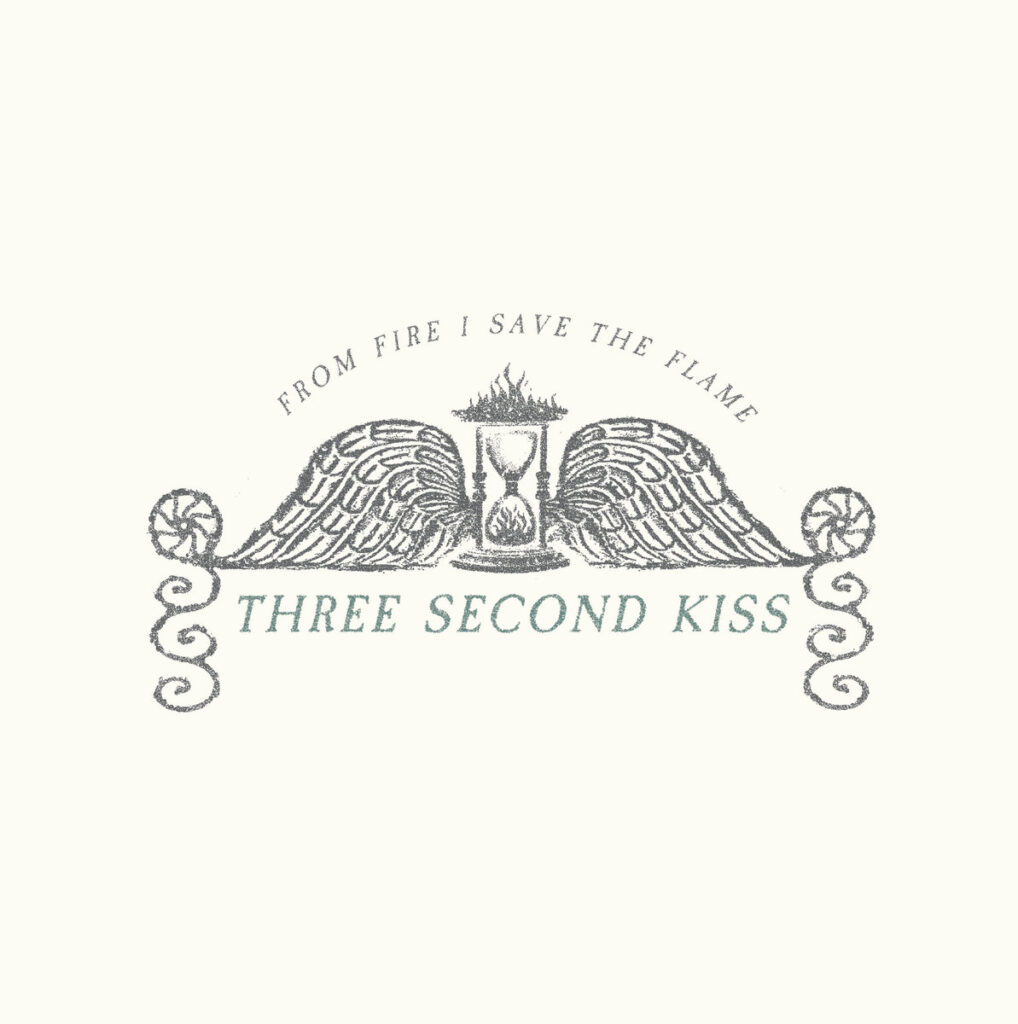
“Our music always follows the evolution of our lives”
With a history spanning over three decades and a geographical journey from Bologna to Catania, how has the ever-changing landscape of your operational base influenced the evolution of your sound and compositional approach, particularly in your latest release ‘From Fire I Save the Flame’?
Sergio: The impact of this change was decisive and fundamental. The change of environment, the exit from our comfort zone, gave us a new push, a determination to achieve better results. Catania is a profoundly different city from Bologna—more chaotic, visceral, epidermal. Our music was positively affected, as was the need to experience rehearsals as an opportunity for sharing a closer exchange between us.
You’ve mentioned that ‘From Fire I Save the Flame’ doesn’t simply pick up where your previous work left off. Could you delve deeper into the transformation of your musical discourse over the twelve-year hiatus, and how this album represents a departure or evolution from your earlier sound?
Sergio: I have to tell you that I always feel a little uncomfortable talking about our music. Not out of snobbery, of course, but because I always find any verbalization concerning an expression so intimate and difficult to explain with words very limiting. In these 12 years, the only thing we’ve done is not talk about our music, or where we wanted to go, or what sound or structure we had in mind, but simply focus more on “doing things,” just playing. Communicating between us through the spontaneous evolution of the pieces. Everyone was free to arrange and insert whatever they wanted into a piece. It was a slightly different approach from the past, where we were a bit more inclined to discuss the arrangements, before and after a new track. So, yes, this record is more skin-deep, less mediated, and more spontaneous.
Sacha: Our music always follows the evolution of our lives, but in a natural way.
Bringing in Don Zientara, known for his work with Fugazi and Dischord Records, to engineer ‘From Fire I Save the Flame’ seems like a deliberate choice. How did Zientara contribute to capturing the essence of your sound and vision for this album, and what unique elements did he bring to the recording process?
Sergio Carlini: Of course, we wanted Don Zientara for many reasons, because we love his work and the way he records, and because we knew that he is a very easygoing and open person. For us, it was the realization of a desire we had had for a long time. It was truly unique to have him with us in the studio—like having a fourth member in the band. The first thing he said to us after seeing the studio was, “Guys, I wish you were all in the same room and looked at each other and talked while you tested the pieces.” And so it was. It was just what we needed.
Sacha Tilotta: We had a feeling that the new material was particularly suited to the way Don records. In fact, the hunch turned out to be correct while we were in the studio. In the edginess of certain musical interactions, it helped, in my opinion, to make everything a little softer and smoother. And then his deep decades of experience blended with an extreme helpfulness and simplicity that is impossible not to appreciate. Returning to the recording, the particular focus he is able to give to the drums on the records he produces, I was sure would enhance the rhythmic arrangements of the songs, as well as the other instruments.
Your album announcement speaks of the new tracks being conceived between composition and instinct, light and darkness, influenced by endless displacements and life experiences. Can you elaborate on how these external factors shaped the thematic and sonic landscape of ‘From Fire I Save the Flame’?
Sergio: We experience music as a spontaneous emanation of our life experience. We don’t follow any scene in particular other than the one that responds to a minimal approach and without any filters whatsoever. In these 12 years, many things have happened in our lives, good and bad, and we have not hidden anything in our music. Even if deep down, I feel that there is a desire to overcome the difficulties of everyday life.
Sacha: The record was born in the period around the time of the pandemic, and it was obviously influenced by the period we experienced. We composed it almost entirely in Catania, where Massimo and I currently live, so not without commitment and travel on Sergio’s part, and in the midst of very important life changes for all of us. It was impossible for all of this not to influence our music, which, by the way, happens punctually for every work. The title From Fire I Save the Flame (inspired by a work of the Italian poet Guido Celli) in fact comes from this—from that ability to see in the difficulty itself the opportunity for growth and change.
Throughout your career, you’ve navigated through various musical scenes both domestically and internationally, including collaborations with renowned figures like Steve Albini and participation in festivals like All Tomorrow’s Parties. How have these diverse experiences influenced your perspective on music-making, and do you find your approach shifting with each cultural context?
Sergio: I’ll answer starting from this last consideration. Our approach is the same, whatever the latitude or context we are in. It couldn’t be otherwise. The music we make has no filters and shows itself in its nakedness. It’s its body that expresses itself and cannot change or create superstructures on it. Every experience undertaken overseas or abroad, from the most prestigious such as the ATP festival, or the exchange with international musicians and bands, are experiences that test the band and the scope of its language and character. So we face them and have faced them with the utmost openness, curiosity, sincerity, always remaining ourselves. And I believe that this characteristic trait has nevertheless distinguished us. In addition to the musical factor itself. Abroad, especially in the US, unlike in Italy, the public is able to grasp the nuances and differences in style that we bring to our sound. I can’t tell you what it is. We are Italian; we don’t sound like an American band, even though we embraced that approach and sound. It’s a unique trait that differentiates us.
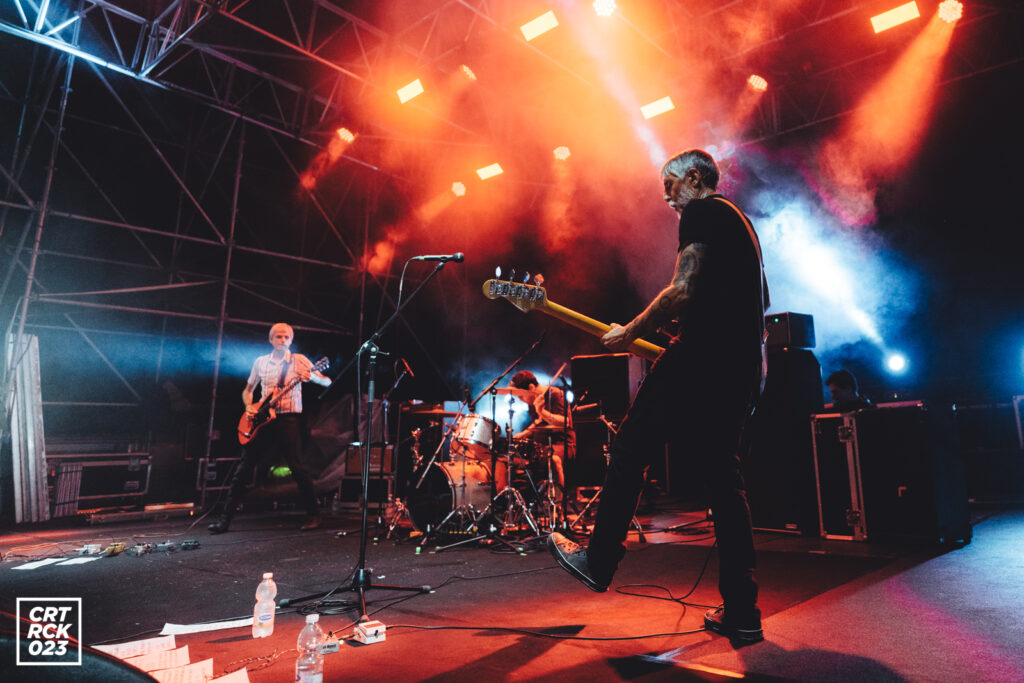
From your debut in 1993 to the present, you’ve maintained a reputation for your raw, angular sound and a devotion to pure electricity. How do you balance preserving the core elements of Three Second Kiss’s sonic identity while also embracing experimentation and evolution in your music?
Sergio: Our experimentation is emotional. It is not linked to a certain sound or the use of a certain effect. We seek always different expressive and emotional ways within a minimal formula made up of three instruments. Even in the most sonic, positive, and passionate pieces, under the skin, under the surface, there is an oblique vein, an underlying melancholy, a small crack—something that is on the verge of collapse. This is a characteristic of us and the way we balance our sound. And… yes, we have a double soul; it has always been like this. We love composing, playing with the structure of songs, just as we love a spontaneous and immediate approach. Our characteristic is the constant dialogue between the three instruments—bass, guitar, and drums. They are in constant dialogue, meeting and clashing. From there, we start every time to tell a new story. When we write a new piece, we don’t stop until we feel that this story is alive, sincere, and emotional.
‘From Fire I Save the Flame’ is described as a record of a whole band, where there are no leads or leaders, but something that transcends individual contributions. Can you elaborate on the collaborative dynamic within the band during the creation of this album, and how each member’s unique perspective shapes the final product?
Sergio: Our compositional method is a non-method. The paths are always the most diverse and surprising. But the moment of working together, of sculpting the sound material, is the decisive one. The pieces were born in the rehearsal room; none of us brings a pre-packaged product. Sometimes there may be multiple ideas that come from just one of us, but which are deliberately not elaborated too much because they are waiting to be changed by the interaction between us. The most exciting thing for me is bringing a new guitar riff into the rehearsal room, some harmonic phrase about which I already have some idea that has formed in my head, and then seeing this idea transform into yet another thing, unpredictable compared to your starting point of view. This is what makes playing in a band special.
Tell us about the instruments, gear, effects, etc. you used in the band.
Sergio: For this record, I used a wood-aluminum guitar (Electrical Guitar Company) and a Fender Dual Showman amp, which I’ve been using since the TSK beginning. Few effects—I don’t like them very much—just a couple of overdrives and a boost. But Don put some chorus here and there. Sacha used a Slingerland vintage drum kit, and Massimo has a wood-aluminum bass (Electrical Guitar Company) through a Traynor head and an Ampeg cabinet.
Are any of you involved in any other bands or do you have any active side projects going on at this point?
Sacha: I also play in a band called Stash Raiders (I play Farfisa organ, sing, and write most of the songs). And I have a solo project on piano, for which I use my own name.
Sergio: A few years ago, I created an experimental guitar duo with the Italian guitarist Francesco Serra, and we produced a record together (Serra-Carlini), as well as releasing a solo record in 2012 of just my guitar with the moniker Jowjo. Massimo used to have another band called Yaguar.
Let’s end this interview with some of your favorite albums. Have you found something new lately that you would like to recommend to our readers?
Sergio: I don’t have current bands or names I would recommend, really. I’ve listened to some tracks from the latest Dirty Three album that I really liked. I often enjoy listening to jazz records from the experimental period of the 60s/70s, you know… classics like Coltrane, Shepp, or Pharoah Sanders. My favorite albums? It’s too difficult to make a selection. Too many to name. But Captain Beefheart will always play on my record player for sure.
Sacha: I listen to a lot of old records, live jazz, and 60s and 70s classic rock—Coltrane, Davis, Crosby, Stills, Nash, and Young, or Jefferson Airplane, and Captain Beefheart. Regarding new records… I love the latest albums from Dirty Three and Shellac, or Betty Gibbons’ new material, or the Italian-American band Il Sogno del Marinaio.
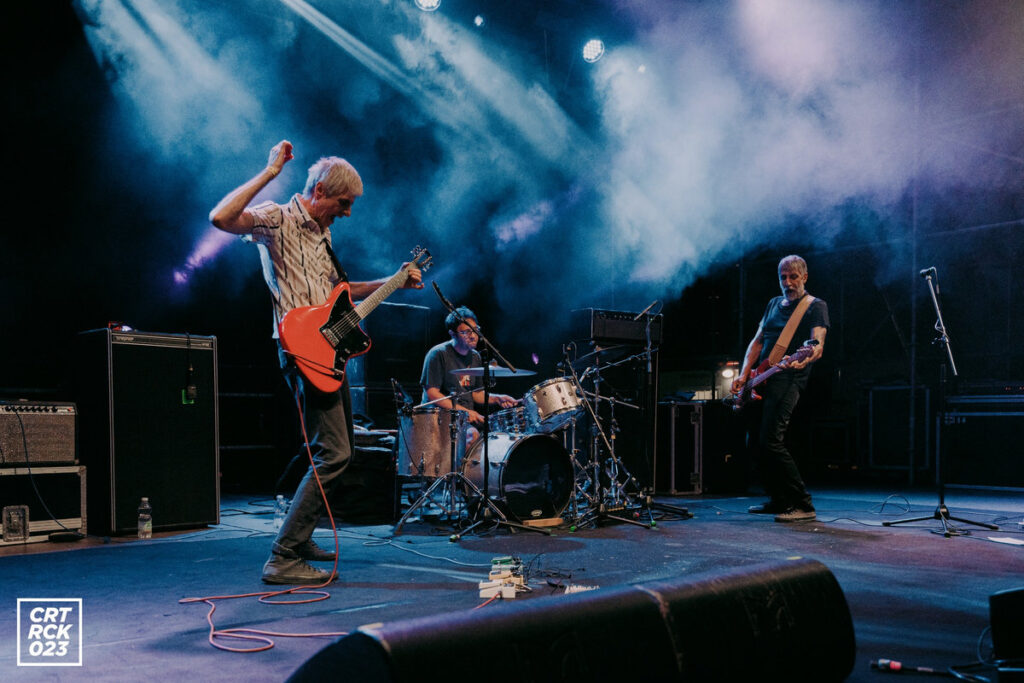
Thank you for taking your time. The last word is yours.
Sergio: Thank you for the interview… it’s psychedelic baby, and it needs to stay that way.
Klemen Breznikar
Three Second Kiss Facebook / Instagram / Bandcamp
Overdrive Records Official Website / Facebook / Instagram / Twitter / Bandcamp / YouTube

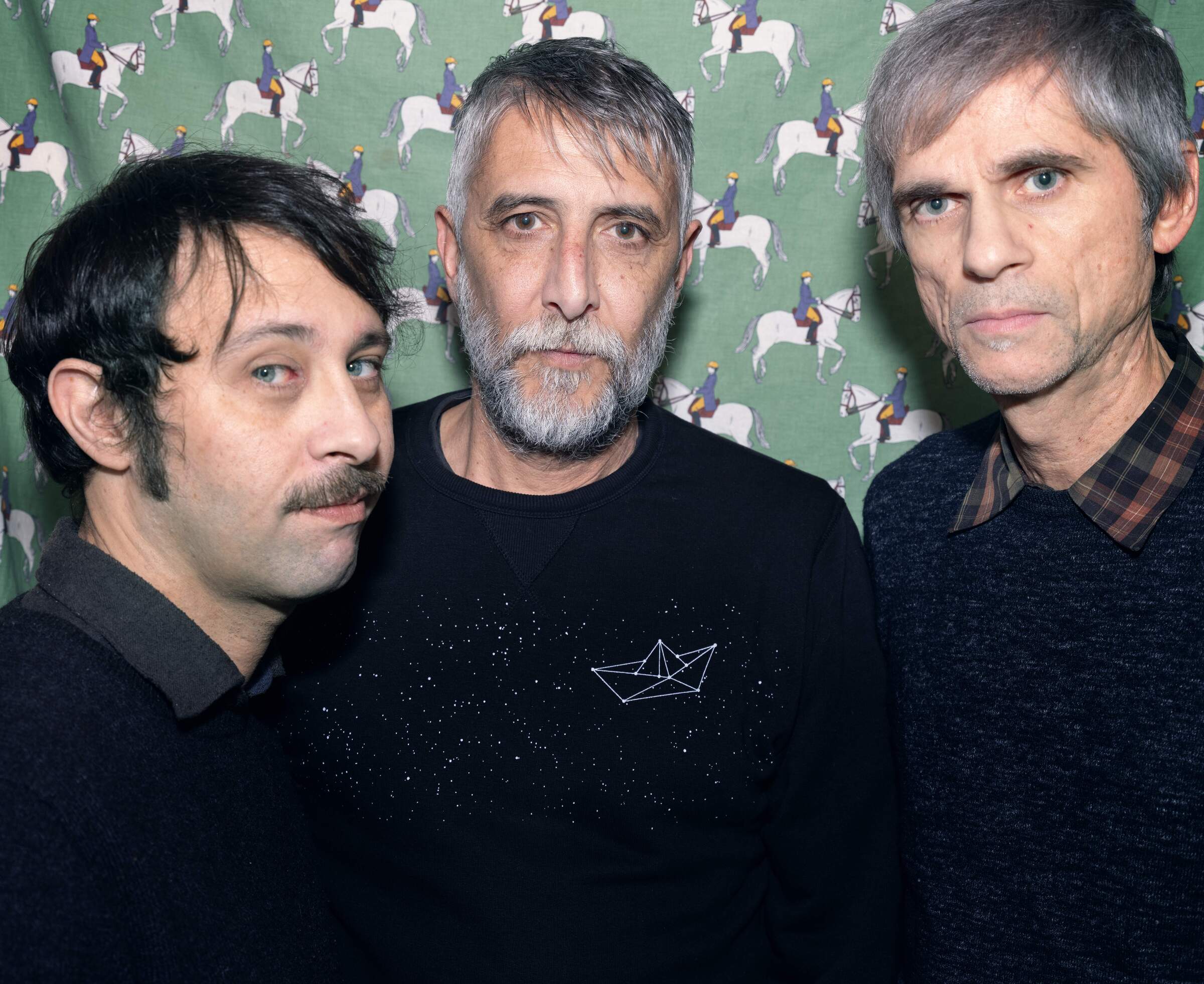
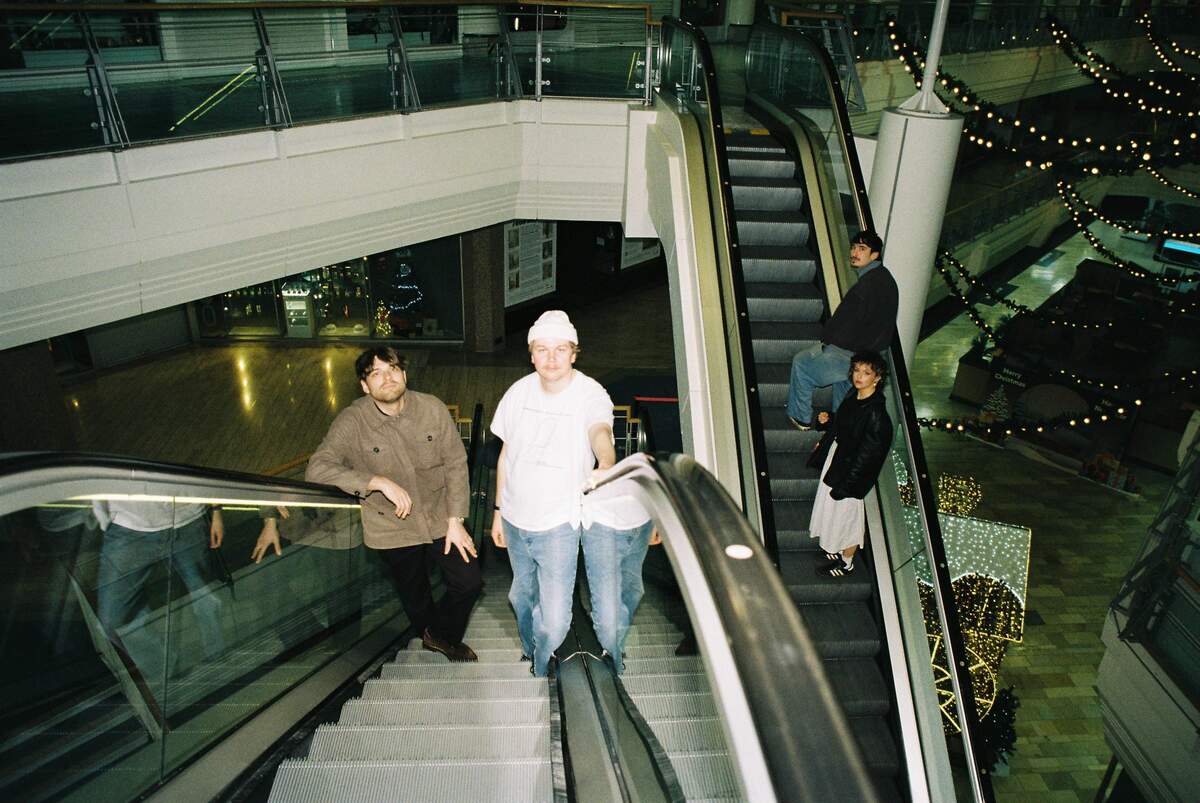


pretty nice